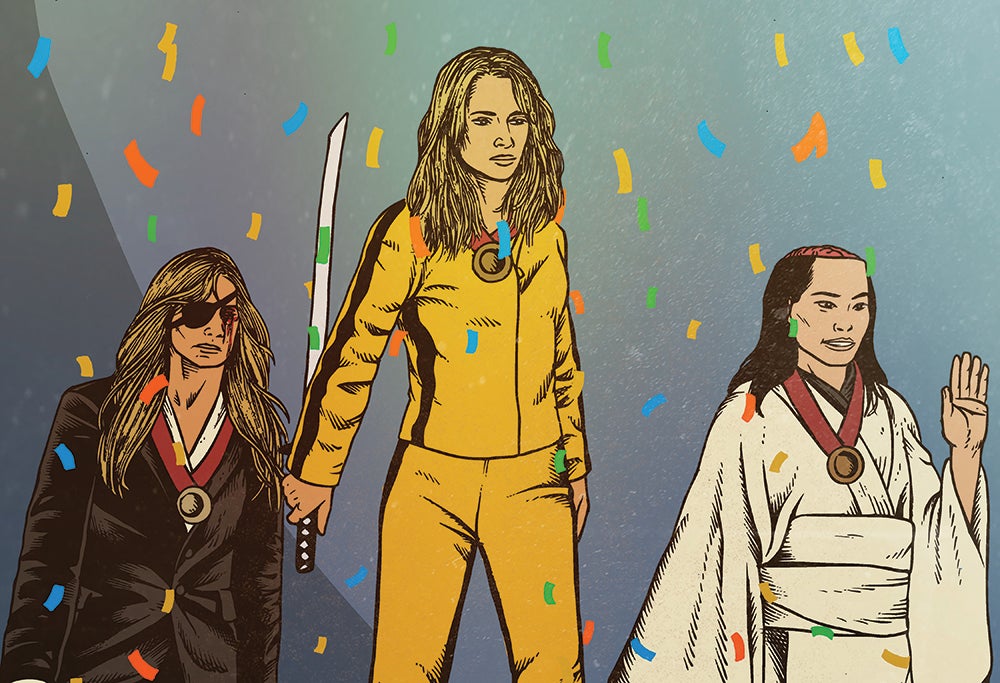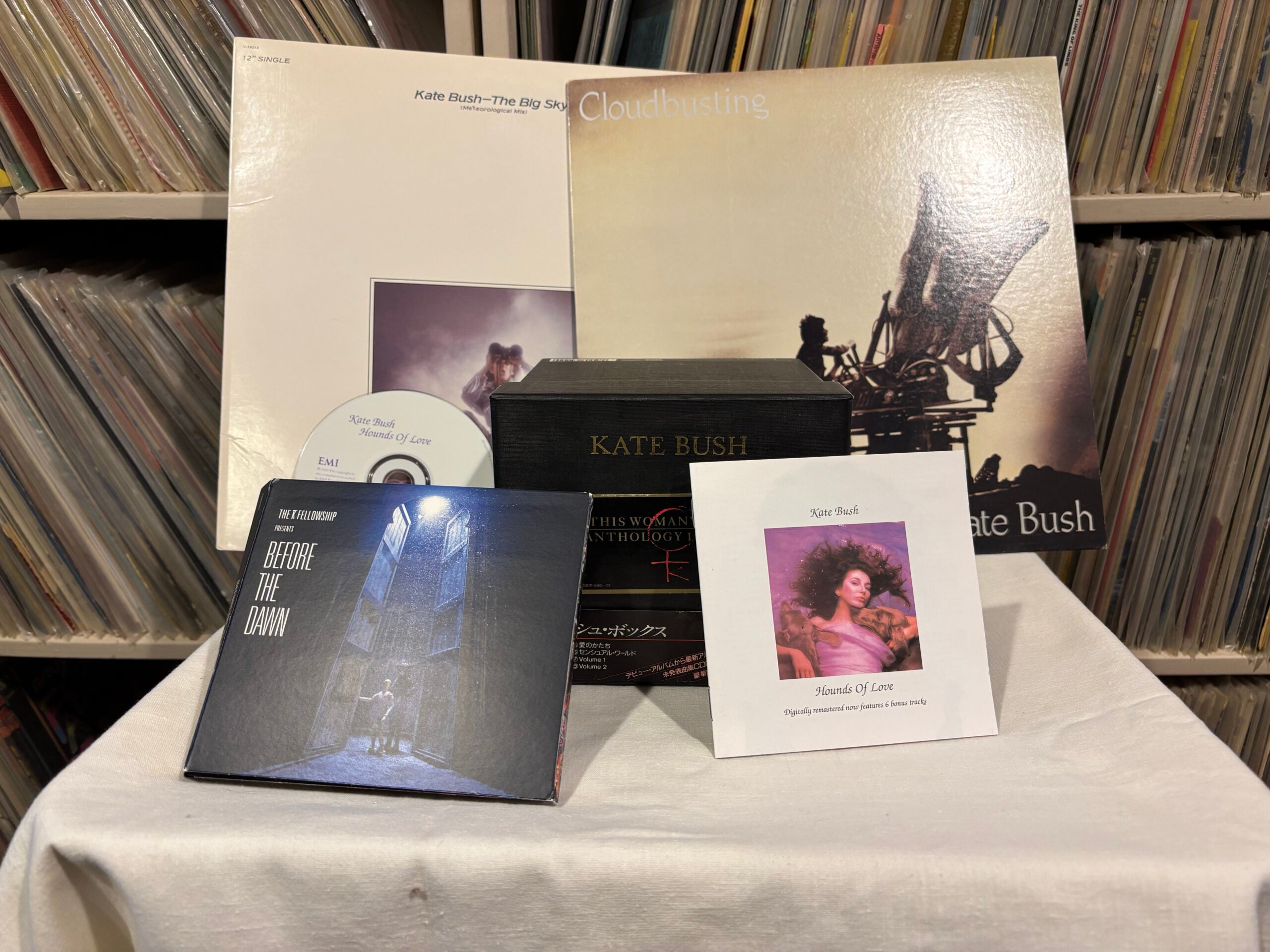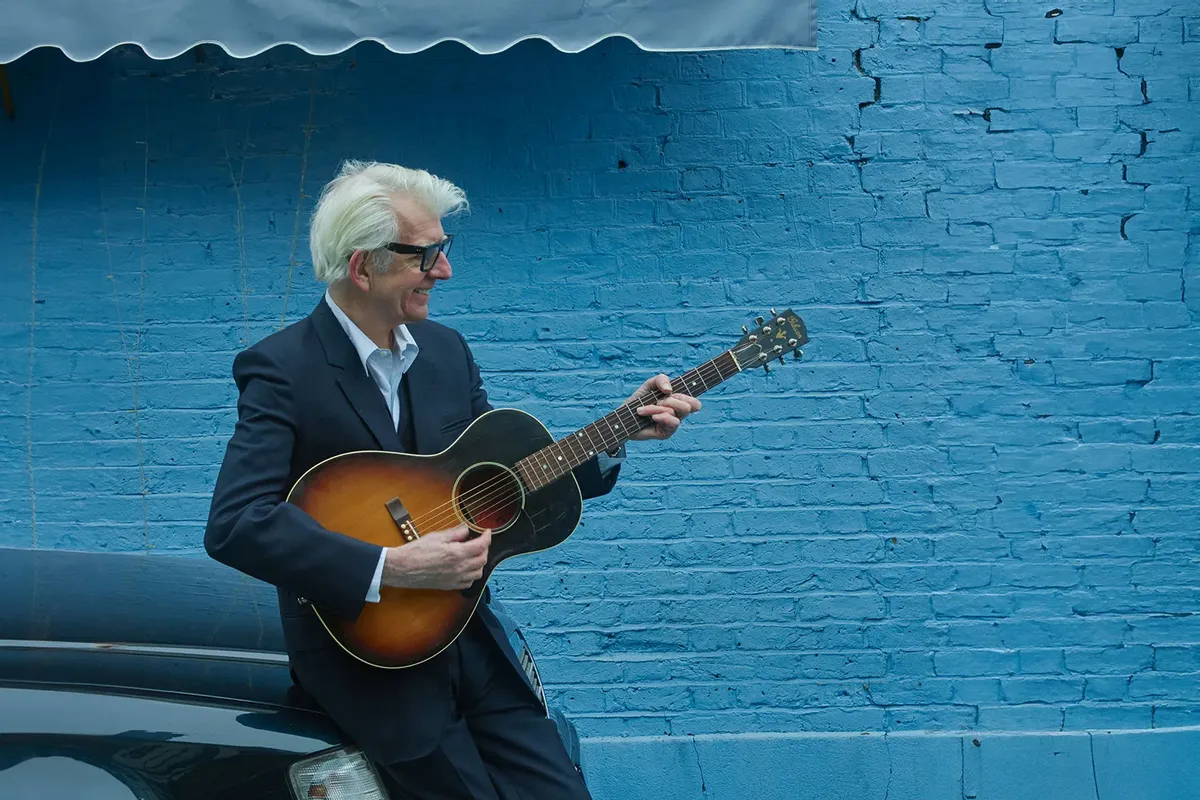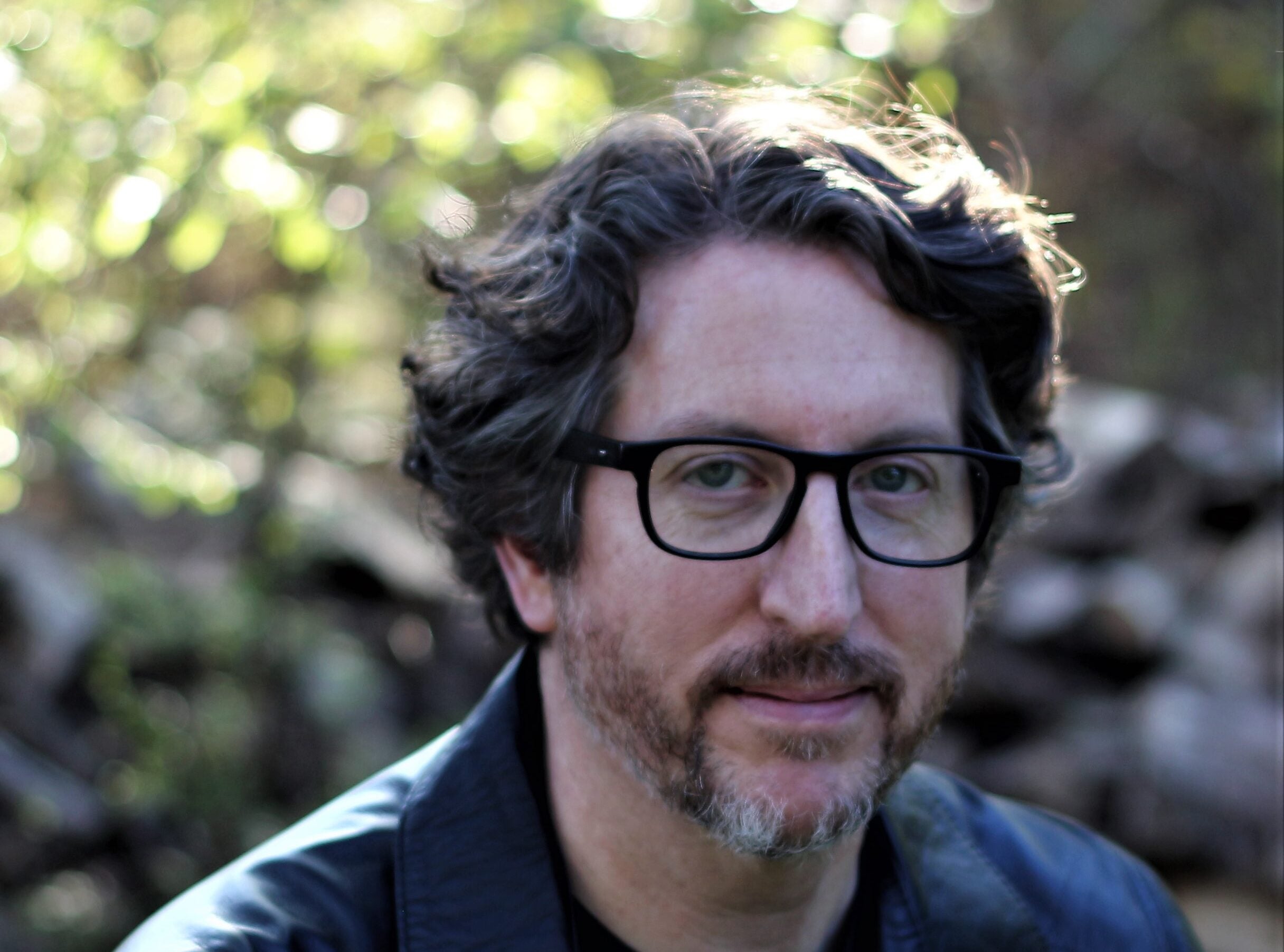Singer/Songwriter Ben Folds reflects on creating brutal piano rock. Also, “The Ringer”‘s Shea Serrano serves up some cinematic thought experiments. And Folake Olowofoyeku on how immigrating to America led to her leading role in the sitcom, “Bob Hearts Abishola.”
Featured in this Show
-
Musician Ben Folds Reflects On His Genre-Bending Career
Singer, songwriter and pianist Ben Folds has enjoyed a long, successful career as an unconventional icon. He’s created genre-bending music throughout his solo career and as the frontman of the trio Ben Folds Five. He reflects on his life and work in a memoir called “A Dream About Lightning Bugs: A Life of Music and Cheap Lessons.”
Folds formed Ben Folds Five with Robert Sledge on bass and Darren Jessee on drums in 1993. In his book, Folds describes the band’s style of musical arrangement as “brutish.”
“The idea was to not serve the song because the songs had had lives before Ben Folds Five,” he told WPR’s “BETA.” “And they hadn’t been successful. I’d been playing those in little clubs by myself. I’d made demo tapes for years. It had all more or less been rejected. And we just kind of stumbled upon the power of beating the songs up. I think in the book, I use the image of the suitcase commercial where the monkeys are beating up the suitcases. If they can stand that, then they’re good suitcases. And that was their quality control.”
“We turned the vocal down … the distorted bass was louder sometimes than the vocals, and cymbals were bashing, and I was playing wrong notes. It was really pretty raucous stuff. But in the middle of it is a song that could be like a Broadway hit,” Folds said. “So the idea was just like let’s put that kid in a rough neighborhood, let him get beat up some.”
In his book, Folds writes that he knew of no precedent for a full-time, guitarless piano rock trio in the mainstream when Ben Folds Five started.
“We were the piano band that rocked,” he said, adding that part of the book is spent exploring piano rock prior to Ben Folds Five. “Elton John did that ’17-11-70′ album, which wasn’t intended to be an album; it was just a live show … God, I think it brings out the incredible pianist in Elton. That’s some of his best piano playing.”
One of the things that Folds and his bandmates Sledge and Jessee learned during the early days was that if something didn’t make sense, it could be worth exploring because it meant nobody else was doing it.
“We just came to feel that anything that got resistance was, you know, advance until apprehended,” Folds said. “Even a band like Queen had broken a lot of rules but did it in a way where you just really stressed the obvious. You know, you got a great singer. Put that singer straight up front. Hell, overdub them, make 15 of them. Massive harmonies. Now really exaggerate what they did. By the time we came along, you really needed to be looking at other things and exaggerating other things. You don’t want to do what your parents did.”
Folds also shared his theory about a sense of discovery all songs should have.
“A song or a performance should have a shared sense, even if it’s an illusion, of discovery between the audience and the singer,” he said. “The singer ought to feel like the third chorus ought to feel like something has been discovered. It can’t be the same exact person, in my opinion. If you keep writing the same s— over and over again, even if you know you’re really good at it, you lose that sense of discovery.”
“Rockin’ the Suburbs” is the title track from Folds’ 2001 debut album as a solo artist. The song was inspired by the state of the culture at that time.
“I realized that there was a whole decade of radio formats that were just dedicated 24/7 to white middle-class anger. That’s what that stuff was, modern rock radio was white middle-class anger. It was screaming all the time. Everything was bad, everything was loud, fuzzy, pissed off. You know, you took it for granted after a while. I wanted to poke fun at it and as I thought about it, I was like ‘Okay, I’m making fun of this but there’s something to it,” he said.
“I thought about Stevie Wonder growing up black and blind in a pretty rough time relative to civil rights. I think he had something to be pissed off about. But all his songs aren’t angry. They’re love songs or happy songs, all kinds of songs. Because he’d actually been through it, so he could appreciate the good sides.”
One of Folds’ most beautiful songs “Landed” has a kind of country vibe to it and some great vocal work, especially on the chorus. Folds said the song came to him while walking on the beach in Australia.
“I was thinking about my brother-in-law and I really wrote it from what I thought was his perspective — it turns out it was from my perspective,” he recalled. “There was a time where he was working in a coal mine. So I can see that maybe if I wanted to connect with him that I was connecting the music in a little more country sort of way. Then there’s, I think, an interesting modal shift into the chorus. Suddenly, the seventh scale degree is flat. It’s just a different mode you wouldn’t hear normally alongside the verse. It stays in the same key but almost sounds like it’s changed keys. Back to my lab coat, that’s what I was really drawn to. It sounded stormy suddenly and it sounded like the footing of the tonality was being questioned for a second. And that to me seemed like a powerful place to put a story.”
-
Author Shea Serrano’s 'Movies (And Other Things)' Is The Ultimate Popcorn Book
Author Shea Serrano has never had trouble offering fresh and fun perspectives on traditional sports and pop culture fare.
Born in San Antonio, Texas, the teacher-turned-journalist was finding his niche at the Houston Press and LA Weekly when Bill Simmons — founder of two of the nation’s most popular sports and pop culture websites — discovered Serrano’s unconventional work and hired him to write for ESPN’s Grantland in 2015.
“Imagine you have this very powerful figure, in this industry where everybody looks up to him, and he decides he’s going to reach down and he’s going to grab you and he’s just going to pick you up into the air and celebrate you in front of everybody,” Serrano tells WPR’s “BETA” of the life changing development. “Bill showed up and nothing has been the same since.”
The following year, after Simmons’ fallout with ESPN, Serrano would be one of the few handpicked writer/editors to follow Simmons to his new site, The Ringer. The exposure offered Serrano a platform for his trademark takes on rap, basketball, film and TV.
“I’m not approaching stuff any differently than I was before Bill showed up,” Serrano stated. However, he admits that more people now take his work seriously and find it valuable.
The newfound creative capital also allowed Serrano to release a series of innovative books. There was “The Rap Year Book: The Most Important Rap Song From Every Year Since 1979, Discussed, Debated, and Deconstructed” — a New York Times bestseller that was announced to be adapted into a docu-series for AMC.
He followed that up with “Basketball (and Other Things): A Collection of Questions Asked, Answered, Illustrated” which also snagged a spot on the New York Times bestseller list, but made a bigger splash as one of former President Barack Obama’s favorite reads of 2017.
Now, Serrano has tackled film in his third book with his New York Times bestseller, “Movies (And Other Things).” The book is a series of cinematic thought experiments that explore whimsical and provoking questions from (recent) movie history.
For instance, Serrano ponders if adding superstar Dwayne “The Rock” Johnson to popular movies makes them better, worse or the same. At first glance, it seems like a silly premise that actually speaks to the current climate of celebrity.
“It’s supposed to be some sort of commentary on The Rock creating for himself a global stardom that doesn’t exist anymore,” said Serrano. “He was able to achieve that and the way he was able to do it, is he just decided ‘you know what, I’m going to be in every single thing.’”
Yup, read this last week. Great stuff. Mahalo Shea
— Dwayne Johnson (@TheRock) October 17, 2019and the answer is hell to the yes
Serrano also painstakingly digs through the last 25 years of Oscar winners to reshuffle some of the more questionable winners and reward some of the unjustifiable snubs in a section he calls, “The Brand New Academy Awards.”
“My biggest takeaway from this experience is that the Oscars gets a lot of stuff wrong,” Serrano quipped. “Even the people who are supposed to know more than everybody else screw up a whole bunch of times.”
Additionally, Serrano had fun weighing which action star/tough guy is the best dog owner, what movie villain would you love to hang out with, and was Andy Dufresne’s time in Shawshank prison worth it once you adjust his embezzled funds for inflation.
“Was his time in prison worth it?” Serrano questioned. “Because that money back then translated to now is like a couple million dollars.”
While most of the chapters are simply fun, others scratch at larger societal issues (“Did Denzel’s race-forward football camp work or not?” and “Which race was white-saviored the best by Kevin Costner?”) and others are deeply personal for Serrano.
Take, for instance, his unique form to identify the best gangster movie scene in film history, where Serrano stages a three chapter draft (armed with a few guide rules so “Goodfellas” and Robert De Niro don’t dominate the exercise). Serrano lands on a scene from “A Bronx Tale,” a film about a son torn between the local gangster and his bus driving, workingman father, played by (surprise, surprise) Robert De Niro.
“I have a very similar relationship with my father — also he’s a bus driver. He’s being doing it for 30 plus years in San Antonino,” said Serrano. “These pieces fit here, it touches me.”
Likewise, Serrano — whose own life story is being adapted for an ABC sitcom from “Parks and Recreation” and “The Good Place’s” Michael Schur — displays an affinity for the 1997 Jennifer Lopez vehicle, Selena. He talks about how it was the only film he can remember that represents the Mexican American experience he went through as a child.
Serrano keys in on a particular scene where Lopez’s character, singing sensation Selena, and her brother want Selena to perform in Mexico, but their father outlines why that would be tough.
“They’re trying to figure out why and he gets into this whole conversation about how being Mexican is different from being Mexican American. Being Mexican American means you’re caught in the middle,” explained Serrano. “It’s the best examination of the idea that has happened in a movie up to that point and since then.”
-
Actor Folake Olowofoyeku On Her Journey From Nigeria To Hollywood
Since immigrating to the United States at the age of 18, Folake Olowofoyeku has made a name for herself in Hollywood. She’s guest-starred on such TV shows as “Westworld,” “Transparent” and “Modern Family.” Now she’s co-starring in the CBS sitcom, “Bob Hearts Abishola.” The show was created by “The Big Bang Theory’s” Chuck Lorre.
“Our show is a 30-minute comedy about Bob, a compression sock salesman, who has a heart attack,” Olowofoyeku told WPR’s “BETA.” “And during his recovery, he crosses paths with Abishola, a Nigerian immigrant nurse. And he takes an interest in her and moves about trying to pursue her. A couple of our episodes will be focused on that. And then it takes a turn. I wouldn’t say exactly what happens. You have to watch the show to find out. But we explore the immigrant experience, specifically we explore the Yoruba Nigerian immigrant experience in America, which also correlates and is also the universal immigrant story, I believe.”
“Abishola, like me, is a Nigerian immigrant of the Yoruba tribe,” Olowofoyeku said. “Unlike me, she has moved to America with her son for a better life for him. Specifically, she wants him to go to an Ivy League school and become a doctor. That is the traditional Nigerian way. You’re either a doctor or an engineer or a lawyer or … a failure.”
According to Olowofoyeku, the biggest difference between her and the character of Abishola is that she is not as disciplined.
“She’s also a bit more traditional than I am, which is not a bad thing. It’s just who she is. At some point, I think I used to be more like that and I grew out of it. We probably have more in common than not, I think,” she said.
Olowofoyeku says she draws on her mother, her aunts and the other women she grew up around in Nigeria to create Abishola’s character.
“I draw from all of them, their mannerisms. I can’t say exactly what I get from whom, I just have created this library of information that has fed the character. A bunch of them are still alive and they’ve seen it and they’re all very proud. And wish my mom could see it and my father could see it, as well,” Olowofoyeku said.
Olowofoyeku comes from a big family, she’s the youngest of 20 children.
“A bunch of my siblings had already had kids of their own, some grandkids before I came into the picture. So most of them were out of the house. My eldest brother I think is in his mid-70s right now. And my Dad would have been a hundred and something. And my brother before me and I, we didn’t really get along. A lot of times, I felt like an only child. And apart from that, I was in boarding school from about 10 years old.”
She was 18 the first time she came to the U.S. to visit her sister in 2001.
“I just thought I was here on vacation. But something intuitively alerted me that it might be the start of a new chapter. What aided the transition was that my results were stolen in Nigeria to get into university. Sometimes people steal it or give you the wrong information so that you can give them money. And when I found that out, I told my mom, ‘It’s impossible that I failed. I know I didn’t fail. And if you’re telling me to do it again, I’m never going to go to school,” she recalled. “That’s like the worst threat you can give a Nigerian parent. Like I’m not going to school unless I can stay here in America.”
Olowofoyeku has no problem choosing a favorite from the many television guest-starring roles she has had.
“I’m very proud of the work on ‘Transparent.’ I learned a lot outside of the show, delving into the research around my character and what she was experiencing in Palestine. I’d heard about (the conflict) in passing but I’d never done any research into it. And I remember (executive producer/creator) Jill Soloway and producers had experts on the set who spoke to us about what was going on.” Olowofoyeku played an activist named Lyfe who became the love interest of one of the main characters during Season 4.
When she’s not busy with her acting career, Olowofoyeku creates electronic music, which she describes as “Afro electro-folk rock.”
“Afro electro folk rock. Afro because percussion is very important to me. That’s what really gets me into the vibe — the talking drums, the congas, all African percussion,” she said. “I am deeply into Slash. His riffs, his melodies are just so beautiful. And I like to incorporate that with the African drums. And sometimes that manifests itself as a folk track or a popish rock track. But the main elements are electric guitar, an Afrobeat and sometimes I just pull out the guitar and just rock with the percussion.”
Episode Credits
- Doug Gordon Host
- Adam Friedrich Producer
- Doug Gordon Producer
- Steve Gotcher Technical Director
- Ben Folds Guest
- Shea Serrano Guest
- Folake Olowofoyeku Guest
Wisconsin Public Radio, © Copyright 2025, Board of Regents of the University of Wisconsin System and Wisconsin Educational Communications Board.




